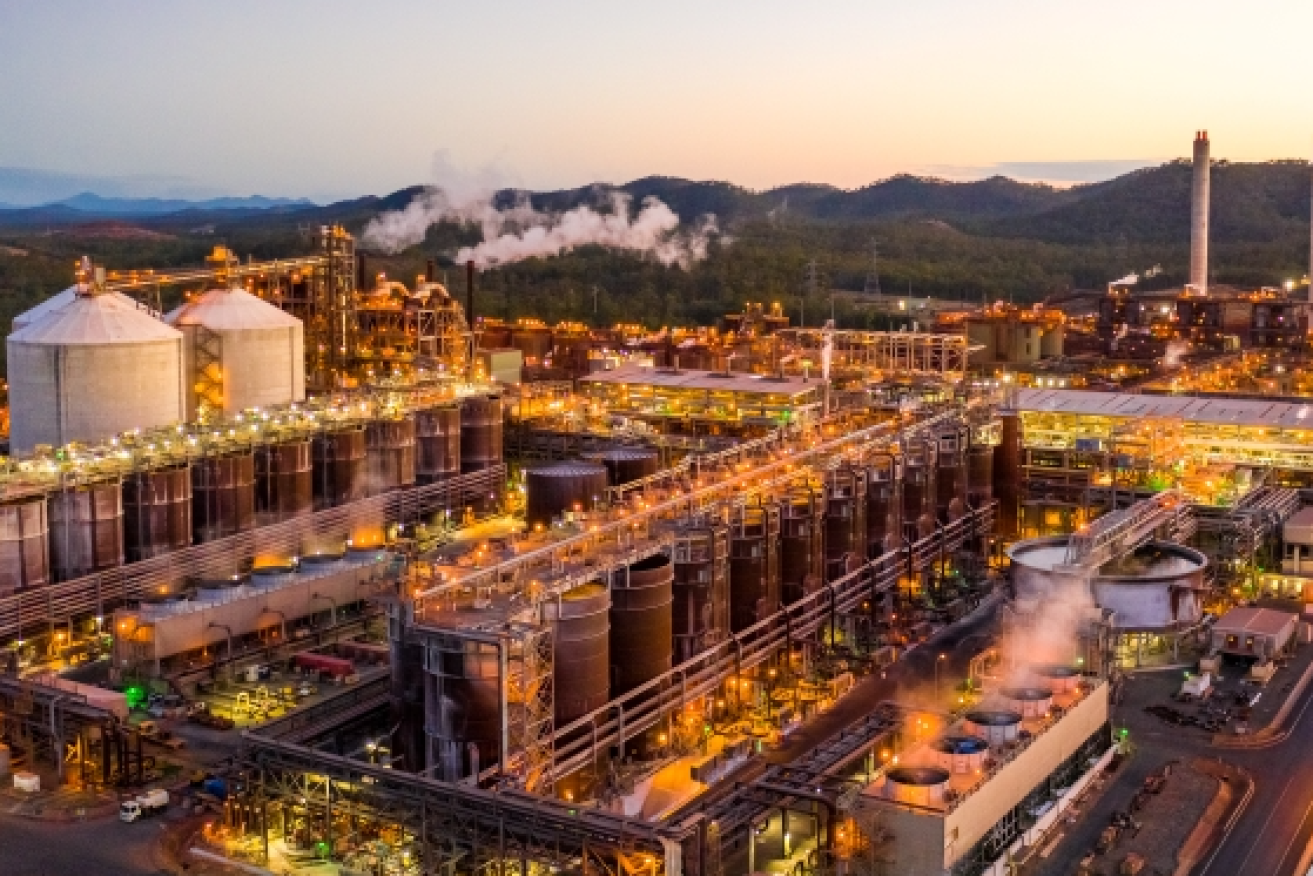Hydrogen to get a world first trial at Rio Tinto’s Yarwun refinery
Rio Tinto and Sumitomo Corporation have agreed to build a first-of-a-kind hydrogen plant in Gladstone as part of a $111.1 million program aimed at lowering carbon emissions from the alumina refining process.


Rio's Yarwun alumina refinery (Photo: Australian Aluminium Council)
The Australian Renewable Energy Agency has contributed $32 million to the project, known as the Yarwun hydrogen calcination pilot demonstration program.
It would reduce carbon emissions by about 3000 tonnes a year, but if successful and the entire plant was converted to hydrogen it could lead to emission reduction of 500,000 tonnes per year, which was the equivalent of taking about 109,000 internal combustion engine cars off the road, Rio Tinto said.
The pilot plant follows the success of a $1.2 million feasibility study co-funded by Rio Tinto and ARENA that was announced in 2021.
Rio said the program was aimed at demonstrating the viability of using hydrogen in the calcination process, where hydrated alumina is heated to temperatures of up to 1000 degrees Celsius. The hydrogen would replace gas in the process.
A hydrogen plant would be built at the refinery and, if successful, the program could pave the way for adoption of the technology at scale globally, Rio Tinto said.
Rio Tinto Aluminium Pacific Operations managing director Armando Torres said the pilot plant was an important step in testing whether hydrogen can replace natural gas in Queensland alumina refineries.
“At Rio Tinto we have put the energy transition at the heart of our business strategy, and this is one of the ways we’re working towards decarbonising our operations,” he said.
“We are proud to be developing this new technology here in Gladstone, in partnership with Sumitomo Corporation, and with support from ARENA.”
The project would need a 2.5MW on-site electrolyser to supply hydrogen to the Yarwun refinery and a retrofit of one of Yarwun’s four calciners so it could operate at times with a hydrogen burner.
The trial is expected to produce the equivalent of about 6000 tonnes of alumina a year and construction would start next year and be in operation by 2025.
Sumitomo Corporation would own and operate the electrolyser at Yarwun site and supply the hydrogen to Rio Tinto directly. The electrolyser would have a production capacity of more than 250 tonnes of hydrogen annually.
Sumitomo’s initiative director, Seiji Kitajima said the company was excited to be delivering project together with Rio Tinto as our long-term partner with the support of ARENA.
“Demonstrating real-world applications of hydrogen in industrial settings with motivated partners is essential to reducing carbon emissions and working toward our company’s vision of achieving carbon neutrality by 2050.
“Through this demonstration, Sumitomo Corporation aims to venture into the commercialisation project to contribute to Rio Tinto’s decarbonisation,” he said.
Rio Tinto is committed to achieving net zero emissions by 2050 and has targets to reduce Scope 1 & 2 emissions by 50% by 2030 from 2018 levels.












